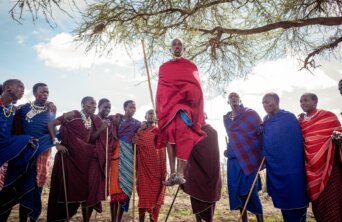- About
- Topics
- Story
- In-Depth
- Picks
- Opinion
- News
- Donate
- Signup for our newsletterOur Editors' Best Picks.Send
Read, Debate: Engage.
| topic: | Indigenous people |
|---|---|
| located: | Tanzania |
| editor: | Bob Koigi |
For hundreds of years, the pastoral community has made a marked contribution to the global economy and protection of the environment through their unique livestock-rearing system.
Estimated at between 200 and 500 million and herding an estimated 1 billion animals, including sheep, goats, cattle and camels, pastoralists have been recognised for their pivotal role in conserving biodiversity, promoting the health of rangelands by improving soil fertility and climate change mitigation.
With an organised land system, the community has relied on livestock mobility and communal land for their livelihood, with such models successfully replicated where land rights architecture has been complex.
But as the world industrialises and demand for land grows, so do the pastoralists' woes. Oil and minerals discovery, urbanisation, intensive cropping, demand for housing and modern conservation initiatives have created interest in pastoralist areas, ousting them from their rightful land and denying them access to the pasture and water sources they rely on for their livestock.
Such displacements have been accompanied by gross violation of their human rights, harassment, torture, forced disappearances and, at times, even death. They are branded criminals in their land.
In Tanzania, such cases have been endemic and systemic, which has sparked deadly conflicts. Pastoralists have been violently pushed out of their homes to make way for infrastructure, protect wildlife or promote foreign investment. Government officials have endorsed such acts. Heartbreaking scenes of the wounded pastoralist community members and women wailing as their houses are torched, and children separated from their parents have been commonplace in the media.
These circumstances have been the norm for hundreds of Maasai pastoral communities in Changalikwa village, Korogwe district in northeastern Tanzania. They settled in the area in the 80s, with the government formally allocating them their rightful land. But from early 1990, they have known no peace, as investors and farmers invade their properties and continue to edge them out of their land.
Over the years, the situation has gotten worse. Despite numerous calls to regional governments to intervene, the grabbing of their land has continued unabated. The pastoralists told FairPlanet about their harrowing experiences with law enforcers, including arbitrary arrests, harassment, demands for bribes, detention of their livestock - their source of livelihood - which are kept in deplorable conditions, and even torture. They say such atrocities have been happening with the full support of the local administration.
There has been relative calm, but the undercurrent of anger and disenfranchisement among the community could lead to more conflicts.
The government must take immediate action to promote peaceful coexistence and uphold the rights of all citizens as enshrined in the Constitution. This should involve making a public statement apologising for the human rights violations inflicted upon pastoralists, recognising their right to land that has been in their possession for generations, and ensuring that the law is applied to punish offenders regardless of their position in government.
The community has been crucial in biodiversity conservation for hundreds of years but has been marginalised. Recognising and appreciating their contributions is a vital step towards fostering lasting peace.
Image by Ramon Sanchez Orense.

